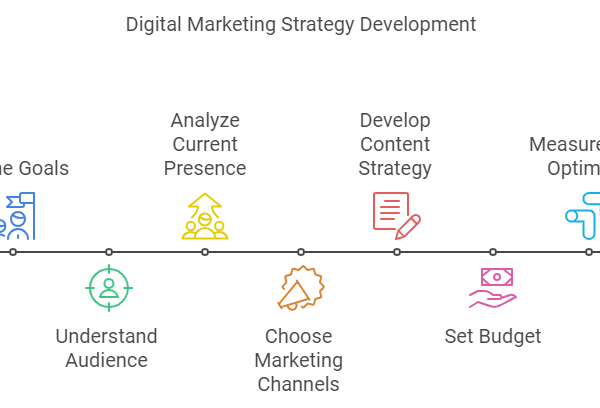
In today’s competitive job market, professionals are constantly seeking ways to stand out and advance their careers. For project managers, one of the most prestigious and widely recognized credentials is the Project Management Professional (PMP) certification. But is it still worth pursuing in 2024? This blog post will explore nine compelling reasons why obtaining your PMP certification through the best PMP training is a smart career move.
Industry-Wide Recognition
The PMP certification, offered by the Project Management Institute (PMI), is globally recognized as the gold standard in project management. It demonstrates your expertise and commitment to the field, setting you apart from non-certified professionals. In 2024, as businesses continue to emphasize efficient project delivery, having a PMP certification on your resume can open doors to new opportunities and career advancements.
Increased Earning Potential
One of the most tangible benefits of PMP certification is the potential for a higher salary. According to PMI’s Earning Power: Project Management Salary Survey, PMP-certified professionals earn 22% more on average than their non-certified counterparts. This substantial earning increase can offset the PMP certification cost and provide a significant return on investment throughout your career.
Enhanced Project Management Skills
The best PMP training programs offer comprehensive coverage of the Project Management Body of Knowledge (PMBOK) Guide. This ensures that certified professionals have a standardized set of skills and knowledge across various project management disciplines. By mastering these skills, you’ll be better equipped to handle complex projects, manage risks, and deliver successful outcomes consistently.
Improved Job Security
In an era of economic uncertainty, having a PMP certification can provide a level of job security. Organizations value professionals who can efficiently manage projects and resources, especially during challenging times. Your PMP credential demonstrates your ability to drive projects to completion, making you an invaluable asset to your employer.
Networking Opportunities
Becoming PMP certified connects you to a vast global network of project management professionals. This network can be invaluable for sharing best practices, finding job opportunities, and staying updated on industry trends. Many PMP training courses also offer networking events and forums, further expanding your professional circle.
Versatility Across Industries
The principles and methodologies taught in PMP certification online courses are applicable across various industries. Whether you’re in IT, construction, healthcare, or finance, PMP certification equips you with versatile skills that can be applied to diverse project environments. This versatility makes you a valuable asset in any industry and increases your career mobility.
Continuous Learning and Growth
Maintaining your PMP certification requires earning Professional Development Units (PDUs). This requirement ensures that certified professionals stay current with evolving project management practices and technologies. The best PMP training providers often offer ongoing education opportunities, helping you meet these requirements while continually enhancing your skills.
Improved Project Success Rates
Studies have shown that organizations with more PMP-certified project managers tend to have higher project success rates. By applying standardized practices and methodologies learned through rigorous PMP training, you can significantly improve project outcomes, leading to greater organizational success and personal recognition.
Global Opportunities
As businesses increasingly operate on a global scale, the demand for internationally recognized credentials like PMP is growing. With a PMP certification, you position yourself for global project management opportunities, potentially leading to exciting international career prospects.
Choosing the Best PMP Training
To fully reap the benefits of PMP certification, it’s crucial to select the best PMP training program. Here are some factors to consider:
- Accreditation: Ensure the training provider is authorized by PMI to offer PMP exam prep courses.
- Comprehensive Curriculum: Look for programs that cover all aspects of the PMBOK Guide and align with the latest PMP exam outline.
- Experienced Instructors: Opt for courses led by experienced, PMP-certified instructors who can provide real-world insights.
- Flexible Learning Options: Choose a program that offers flexible learning formats, such as in-person classes, online courses, or hybrid options to suit your schedule.
- Exam Preparation Resources: The best training programs provide practice exams, study materials, and exam-taking strategies to boost your chances of success.
- Support System: Look for programs that offer mentoring, study groups, or forums where you can interact with instructors and peers.
Meeting PMP Certification Requirements
Before enrolling in a PMP training course, ensure you meet the eligibility criteria set by PMI:
- For candidates with a four-year degree: 36 months of leading projects and 35 hours of project management education.
- For candidates with a high school diploma or associate’s degree: 60 months of leading projects and 35 hours of project management education.
The PMP Certification Process
- Meet Eligibility Requirements: Ensure you have the necessary education and experience.
- Prepare for the Exam: Enroll in a comprehensive PMP training course.
- Submit Application: Apply to PMI and wait for approval.
- Schedule and Take the Exam: Once approved, schedule and take the PMP exam.
- Maintain Certification: Earn 60 PDUs every three years to maintain your certification.
Conclusion
In 2024, PMP certification remains a valuable investment for project management professionals. From increased earning potential to enhanced skills and global opportunities, the benefits far outweigh the initial PMP certification cost and effort. By choosing the best PMP training program, you set yourself up for success not only in passing the exam but in excelling in your project management career.
Remember, the journey to PMP certification is as rewarding as the destination. The knowledge and skills you gain through quality PMP training will serve you well throughout your career, making you a more effective and sought-after project management professional.
FAQs
Q: How long does it take to prepare for the PMP exam?
A: The preparation time varies, but most candidates spend 2-3 months studying intensively. With the best PMP training, you can optimize your study time and feel confident in your exam readiness.
Q: Can I take PMP certification online?
A: Yes, PMI offers the option to take the PMP exam online from the comfort of your home or office. Many reputable training providers also offer online PMP preparation courses.
Q: What is the pass rate for the PMP exam?
A: PMI doesn’t publish official pass rates, but industry estimates suggest a pass rate of around 50-60%. Quality PMP training can significantly improve your chances of passing on the first attempt.
Q: How often do I need to renew my PMP certification?
A: PMP certification must be renewed every three years. This requires earning 60 Professional Development Units (PDUs) over the three-year cycle.
Q: Is PMP certification worth it for experienced project managers?
A: Yes, even for experienced professionals, PMP certification is valuable. It validates your skills, opens up new career opportunities, and often leads to increased earning potential, regardless of your experience level.











